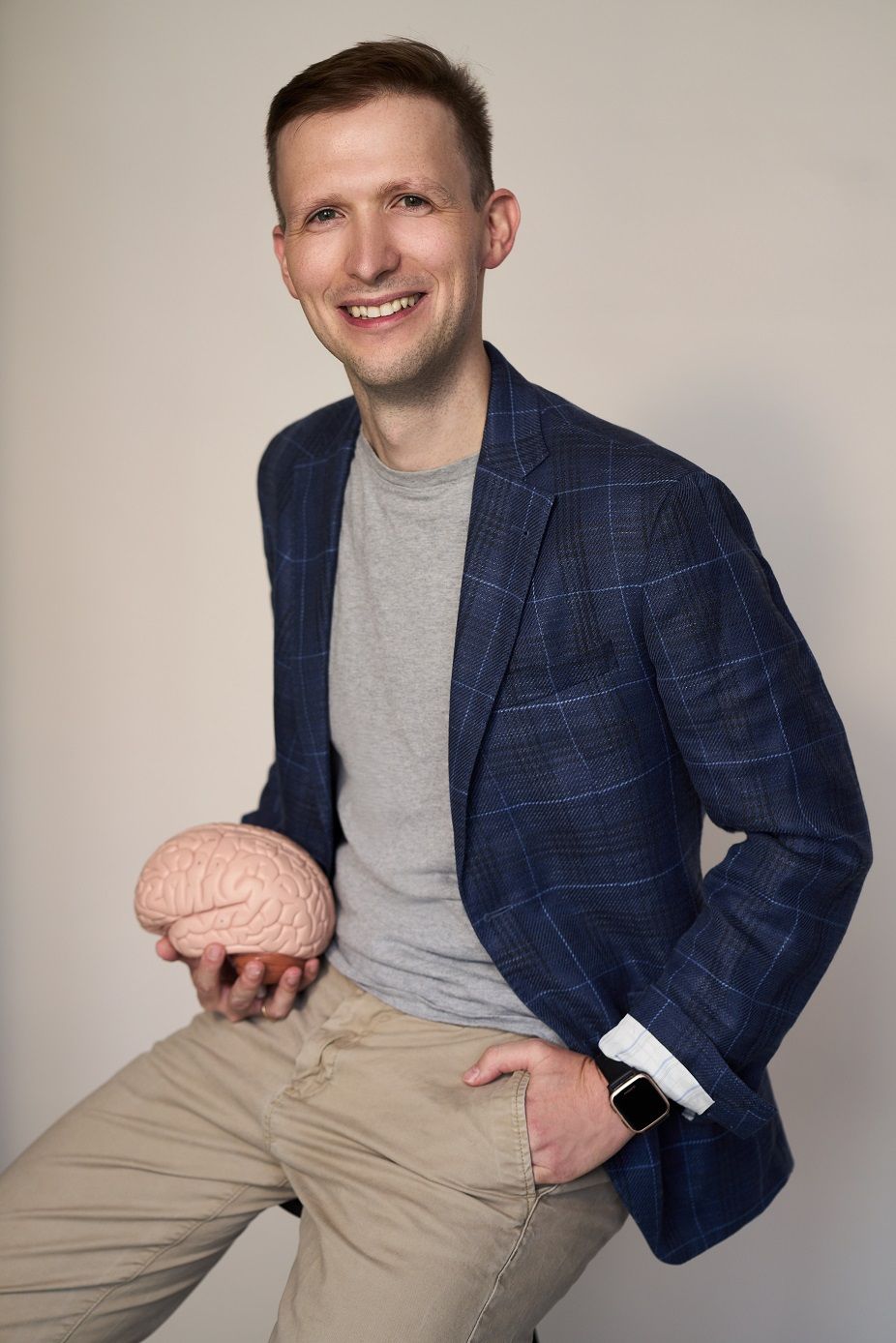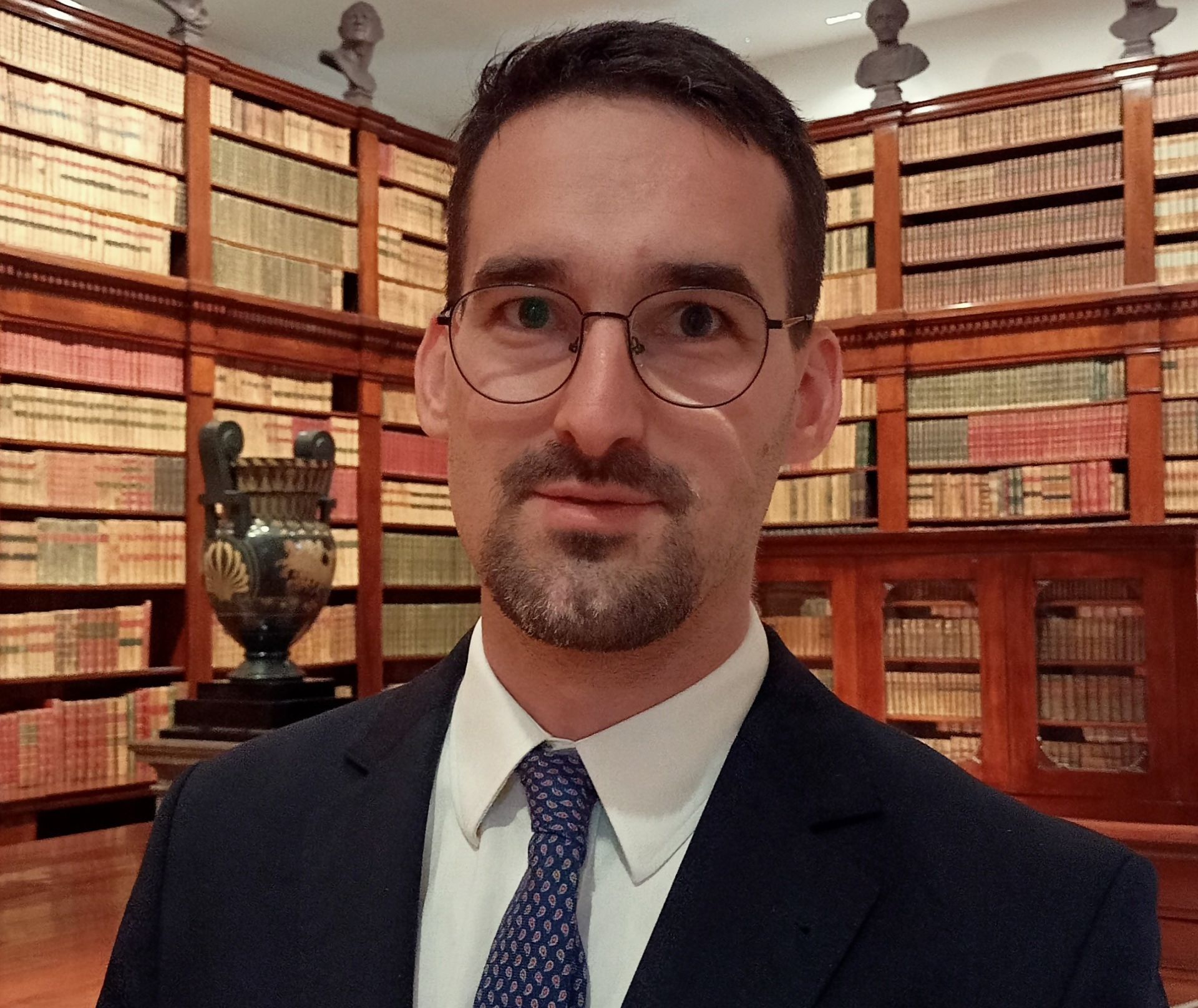Dr Piotr Alexandrowicz, a legal historian at Adam Mickiewicz University in Poznań, and Dr Łukasz Bola from the Institute of Psychology of the Polish Academy of Sciences have joined the ranks of ERC Starting Grant winners. They are also involved in NCN-funded projects.
ERC Starting Grants are available for projects of up to 5 years by post-docs who earned their PhD 2-7 years before the call. They are awarded to research projects that are risky but potentially groundbreaking.
Brain plasticity in the blind
 Dr Łukasz Bola
Dr Łukasz Bola
Dr Łukasz Bola from the Institute of Psychology, PAS, won this year’s ERC grant for a project entitled BLINDBRAIN, focused on brain plasticity in people who are blind from birth. “A large part of the human brain is genetically hardwired to perform tasks related to vision. In my research, I aim to determine what the same areas do in people who are blind from birth and thus do not use their visual cortex in the same way as those with intact vision. This helps me understand how the human brain adapts to new challenges”, the researcher explains.
In recent years, neuroimaging studies on blind subjects have shown that the visual areas of their brain are activated in response to linguistic stimuli, such as words and sentences. The new ERC grant winner seeks to discover the mechanisms behind this activation. “When a blind person hears the word ‘apple’, for example, does their visual cortex produce a relatively simple, spatial representation of a small and round object? If so, this would suggest that these brain areas do retain some of their typical functions, such as the ability to assess object shape and size, even in the blind. But another possible scenario is that the activation we are seeing in these brain areas has to do with representations of more abstract knowledge, such as the fact that apples do not grow in Antarctica or that the word is a noun. This would be an indication that in the blind, visual areas may be responsible for completely different tasks than in people with intact vision. This would revolutionise our understanding of the plasticity of the human brain”, the scientist says.
Dr Bola has authored several dozen publications in leading international journals and completed research fellowships at the University of Glasgow and Harvard University.
Studying paratexts
 Dr Piotr Alexandrowicz
Dr Piotr Alexandrowicz won ERC funding for a project entitled PetrIUS: “Petryfikacja ius commune poprzez drukowane parateksty” [The petrification of ius commune through printed paratexts]. The goal of the project is to examine the history and function of printed marginalia in the most important old legal prints. Collections of Roman and canonical law were published in print in a format that imitated the format of manuscripts: the normative text was placed in the centre of the page, while the margins featured glosses, explanations, legal cases or summaries. These “paratexts” in the margins of printed legal books have not yet been thoroughly analysed. Their analysis can bring important insights into the relationship between legal scholars and printers, as well as about the application of the law, legal interpretation and legal education in the early modern period. These paratexts can also be analysed as tools of legal communication. “We are planning to rely on natural language processing tools, for instance, to quickly and effectively compare thousands of paratexts, track their evolution and look for references to them in contemporaneous legal literature”, the researcher explains.
Dr Piotr Alexandrowicz
Dr Piotr Alexandrowicz won ERC funding for a project entitled PetrIUS: “Petryfikacja ius commune poprzez drukowane parateksty” [The petrification of ius commune through printed paratexts]. The goal of the project is to examine the history and function of printed marginalia in the most important old legal prints. Collections of Roman and canonical law were published in print in a format that imitated the format of manuscripts: the normative text was placed in the centre of the page, while the margins featured glosses, explanations, legal cases or summaries. These “paratexts” in the margins of printed legal books have not yet been thoroughly analysed. Their analysis can bring important insights into the relationship between legal scholars and printers, as well as about the application of the law, legal interpretation and legal education in the early modern period. These paratexts can also be analysed as tools of legal communication. “We are planning to rely on natural language processing tools, for instance, to quickly and effectively compare thousands of paratexts, track their evolution and look for references to them in contemporaneous legal literature”, the researcher explains.
Piotr Alexandrowicz works at the Faculty of Law and Administration of the Adam Mickiewicz University in Poznań. He has published papers on the reception of Roman law in medieval canonical law, early modern comparative law and the legal summaries in the Decretals of Gregory IX.
Previous NCN experience
Both researchers have previously won multiple awards and distinctions. Dr Piotr Alexandrowicz has worked as a PI under three NCN projects. “These projects helped me take the bold step into the international community of legal historians, establish useful contacts and effectively disseminate the results of my research. It is thanks to the NCN that I could and still can continue my post-doctoral research. Since 2020, I have been employed in projects full-time; I have no idea what or where I would be doing if it wasn’t for the NCN”, says Alexandrowicz.
Thanks to the support he got from the National Science Centre and the National Agency for Academic Exchange, Dr Łukasz Bola was able to return to Poland after a stint at Harvard University. He has completed three NCN projects. In his own words, prior experience in domestic calls proved “incredibly helpful” when applying for the ERC grant. “An original research idea is the most important, but so is the credibility of the applicant”, he says, and adds that institutional support is also something that matters. He lists examples such as mentoring initiatives offered by the NCPs of EU Research Programs, as well as mock panels and consultations with experts organised by the Scientific Excellence Office at the PAS.
This year, nearly 3500 researchers applied for ERC Starting Grants. Fewer than 500 were successful. Since 2007, the year in which the European agency was established, a total of 87 ERC grants of all categories (Starting, Consolidator, Advanced, Synergy, Proof of Concept) have gone to Polish researchers.
In the last episode of the NCN podcast, we asked Artur Obłuski and Piotr Sankowski about their experience preparing ERC grant proposals.
